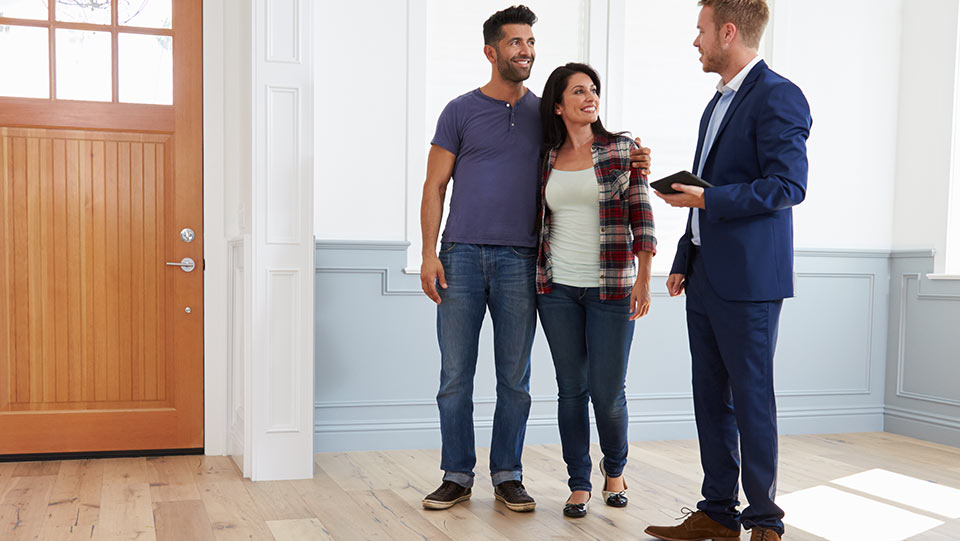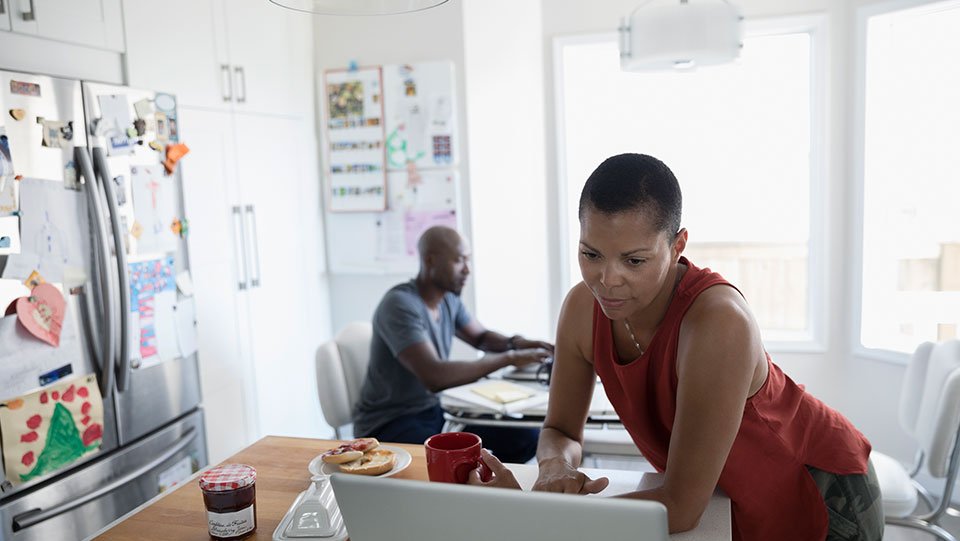6 Ways to Know You May Be Ready to Buy a House


It seems housing prices get more expensive with each passing year. Still, the dream of homeownership remains strong, and many people rightly acknowledge that homeownership is a powerful way to build wealth. But do those positive arguments mean it’s time for you to buy a house?
Though it can be tempting to jump on the bandwagon, it’s important to know whether you’re actually ready to purchase a home. Since buying a house is a big commitment – both financially and emotionally – understanding what homebuying and homeownership entails is more important than ever.
Am I ready to buy a house?
Before you line up the moving truck, make sure you have all the pieces in place. Here’s how to know if you may be ready to buy a house.
1. You have good credit. Like it or not, credit scores are a major factor in mortgage approvals and setting interest rates. The higher your score, the lower your mortgage can be.1 Typically, consumers with credit scores under 700 will pay higher mortgages than those with high credit scores.2
2. Your debt is under control. Contrary to popular myth, you don’t have to be debt-free to purchase a home. But that doesn’t mean it’s wise to pile a mortgage on top of mountains of debt. The general rule of thumb is to limit your total housing payments to no more than 28% of your gross income and your total debt (including the mortgage) to no more than 36%.3
3. You have enough saved for a down payment. A down payment of at least 20% can lead to lower mortgage payments.4 For a home valued at $400,000, that means $80,000 cash on hand. In certain circumstances, you can put down less than 20%. For example, loans from Freddie Mac may ask for a down payment as low as 3% of the purchase price of the home if you meet certain requirements.5
But paying less than 20% typically means adding 0.03% to 0.07% of your loan amount per year to your mortgage in private mortgage insurance (PMI).6 The PMI payment usually remains until you reach that 20% paid threshold.7
4. You have enough money to pay your closing costs. When you first buy a home, you’ll have other expenses on top of your down payment. You can generally expect to also pay for:
- Loan origination fees.
- Home inspection.
- Appraisal.
- Title insurance.
- Recording fees.
- Prepaid property taxes and mortgage insurance.8
Closing costs can usually add 2% to 5% of the home’s purchase price to your total cost.9 Lenders typically let you roll this amount into your loan, which means paying interest on this amount in addition to your mortgage.10 If you can, consider paying for closing costs out of pocket.
5. You can afford the monthly costs of homeownership. To understand your total housing payments, look beyond the monthly mortgage amount your lender will bill you. While your monthly mortgage payment includes repayment of principal and interest, your housing costs may also include:
- Property taxes.
- Homeowners insurance.
- Homeowners Association (HOA) fees, if applicable.
- Utilities.
- Repairs.
Some loans require you to pay property taxes and homeowners insurance from an escrow account.
6. Your income is stable. Having enough money set aside for a down payment and closing costs is one thing. Making enough to pay your monthly housing expenses comfortably for the foreseeable future is quite another. Owning a home is a financial commitment that often lasts for decades. Consider the following before you move forward:
- How good is my employment track record?
- Is my future income in jeopardy because of an unstable job situation?
If you’re ready to buy a home – some suggestions for what to do next
If you’re able to check off many of the boxes necessary to move forward with homebuying, congratulations! Now the real work starts.
Figure out how much house you can afford. To get an idea of a home price within your budget, remember to limit your monthly mortgage payment to less than 28% of your gross income. As an example, if you earn $5,000 a month, your mortgage should be at or below $1,400.11
Compare mortgage rates and fees. Request loan estimates from multiple lenders to compare the same type of mortgage, including interest rates and fees.12
Get a pre-approval letter. A lender’s pre-approval letter details how much you can borrow and the terms your loan will likely have. It shows sellers that you’ve already started the mortgage process and are serious about buying a home, which can give you an edge in a seller’s market.
Choose a real estate agent. Ask for references from recent homebuyers. Look for a real estate agent who’s highly knowledgeable in helping buyers like you. They can help identify homes that meet your criteria and are within your budget. These professionals can guide you throughout the process, from making a purchase offer to closing on the sale.
Stick to your budget. You might feel pressured to spend more on a home than you can comfortably afford. Stay within your budget to keep your financial house in order well into the future.
Start shopping. Check out as many homes as possible to get a sense of what’s available and the price ranges in different neighborhoods and school districts.
Not ready yet? These steps can help you get there
If your finances aren’t quite where they need to be to buy a house, don’t fret. Making a concerted effort in the next year or two can get you ready to buy a house. Here are some things you can do.
Improve your credit score. Paying down debt and making on-time payments can improve your score within a few months. A better credit score should get you a better interest rate, which will lower your monthly payments and the total cost of your mortgage.13
Save for a down payment. You may need to delay your homebuying plans to build up your down payment. Set up automatic transfers to your savings account to simplify the task.
Make a budget. Homeownership is a serious financial step, and it’s not one you should go into unprepared. Create a budget that keeps track of how much you earn, spend and save.
Establish emergency savings. As a renter, your landlord solves a broken toilet or electrical problem. As a homeowner, these repairs are up to you. Save up now to deal with unexpected home expenses as they arise.
Homeownership helps you build equity, reduce taxes and provide stability. But it’s also a big commitment of money and time. Before jumping in, make sure the timing is right for you. Get your financial house in order now so that when you do make the leap, you’ll land successfully.
To help ensure you “stick the landing,” you’ll need to have homeowners insurance in place before closing on your home. If you’re ready to move forward – get a quote, find an agent or speak to a Travelers representative.
Sources
1,2,13 https://www.consumerfinance.gov/owning-a-home/prepare/check-your-credit/
3,8 https://www.amwestfunding.com/Debt-to-income-Calculator
4 https://myhome.freddiemac.com/buying/breaking-down-pmi
5 https://myhome.freddiemac.com/buying/down-payments-and-pmi
6,7 https://myhome.freddiemac.com/blog/homeownership/20190913-private-mortgage-insurance
9,10 https://myhome.freddiemac.com/blog/homeownership/budgeting-upfront-homebuying-costs
11 https://files.consumerfinance.gov/f/documents/cfpb_your-money-your-goals_debt_income_calc_tool_2018-11_ADA.pdf
12 https://www.consumerfinance.gov/policy-compliance/know-you-owe-mortgages/real-estate-professionals/



